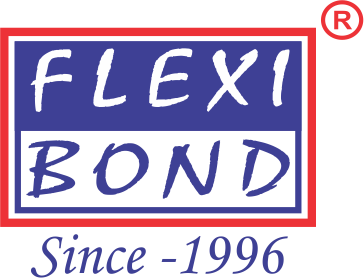In today’s world, sustainability has become a crucial aspect of product manufacturing and consumption. Among the many products we use daily, BOPP (Biaxially Oriented Polypropylene) tapes are ubiquitous in packaging, sealing, and labeling applications. As a prominent BOPP tape manufacturer in India, particularly in Gujarat, Flexibond Tapes has been at the forefront of producing these essential tapes. However, with growing concerns over environmental sustainability, it’s essential to assess the environmental impact of BOPP tapes and explore whether they can be considered sustainable.
What Are BOPP Tapes?
BOPP tapes are a type of adhesive tape made from a plastic film of biaxially oriented polypropylene. They are widely used due to their strength, clarity, and resistance to moisture and chemicals. The manufacturing process involves stretching the polypropylene film in two directions, which enhances its durability and flexibility. BOPP tapes are common in various applications, from packaging to industrial uses, making them an integral part of modern life.
Environmental Concerns with BOPP Tapes
- Plastic Waste
One of the primary concerns with BOPP tapes is their reliance on polypropylene, a type of plastic. Plastics, including polypropylene, are derived from fossil fuels, and their production and disposal have significant environmental implications. The non-biodegradable nature of polypropylene means that BOPP tapes contribute to long-lasting plastic waste. Once discarded, they persist in the environment for hundreds of years, potentially contributing to pollution and harming wildlife. - Energy Consumption
The production of BOPP tapes involves significant energy consumption. The process of creating polypropylene film requires considerable heat and power, contributing to greenhouse gas emissions. As the world grapples with climate change, reducing energy consumption and transitioning to renewable energy sources become crucial to mitigating environmental impact. - Recycling Challenges
While polypropylene is technically recyclable, the recycling rate for BOPP tapes remains low. This is partly because BOPP tapes are often mixed with other materials and adhesives, complicating the recycling process. Additionally, many recycling facilities are not equipped to handle BOPP tapes, leading to their disposal in landfills rather than being processed for reuse.
Sustainability Efforts by Flexibond Industries Pvt Ltd
As a leading BOPP tape manufacturer in India based in Gujarat, Flexibond Tapes recognizes the importance of addressing environmental concerns associated with BOPP tapes. The company is committed to adopting sustainable practices and reducing the environmental footprint of its products. Here are some of the initiatives Flexibond Industries Pvt Ltd is undertaking:
- Sustainable Raw Materials
Flexibond Industries Pvt Ltd is exploring the use of more sustainable raw materials in the production of BOPP tapes. This includes investigating alternative materials that have a lower environmental impact and developing new formulations that reduce the reliance on fossil fuels. - Energy Efficiency
The company is investing in energy-efficient technologies and processes to minimize the energy consumption of BOPP tape production. By adopting advanced manufacturing techniques and optimizing production processes, Flexibond Industries Pvt Ltd aims to reduce its carbon footprint and lower greenhouse gas emissions. - Recycling Programs
Flexibond Industries Pvt Ltd is actively working on improving the recyclability of its BOPP tapes. This includes developing new adhesive formulations that are easier to separate from the film and exploring partnerships with recycling facilities to ensure that used tapes are properly processed. Additionally, the company is educating consumers about the importance of recycling and proper disposal of BOPP tapes. - Eco-Friendly Packaging
The company is also focusing on eco-friendly packaging solutions for its BOPP tapes. By using recyclable or biodegradable materials for packaging, Flexibond Industries Pvt Ltd aims to reduce the environmental impact of its products throughout their lifecycle. - Research and Development
Ongoing research and development are crucial for advancing sustainability in BOPP tape production. Flexibond Industries Pvt Ltd is investing in R&D to explore innovative solutions that enhance the environmental performance of BOPP tapes. This includes developing new materials and technologies that improve the sustainability of the entire product lifecycle.
Moving Towards a More Sustainable Future
While BOPP tapes have significant environmental challenges, efforts by manufacturers like Flexibond Industries Pvt Ltd demonstrate a commitment to sustainability and responsible production. The key to improving the environmental impact of BOPP tapes lies in continuous innovation, adoption of best practices, and collaboration across the industry.
Consumers also play a vital role in promoting sustainability. By choosing products from manufacturers who prioritize environmental responsibility and participating in recycling programs, individuals can contribute to reducing the environmental footprint of BOPP tapes.
The path to sustainability is ongoing, and the transition to more eco-friendly alternatives and practices is essential for mitigating the environmental impact of BOPP tapes. As the demand for sustainable products grows, manufacturers will need to continue evolving and finding new ways to balance functionality with environmental stewardship.
In conclusion, while BOPP tapes, including those produced by Flexibond Tapes, present environmental challenges, there are promising efforts underway to make them more sustainable. By addressing plastic waste, energy consumption, and recycling challenges, the industry can work towards reducing the environmental impact of BOPP tapes and contributing to a more sustainable future.


No comment yet, add your voice below!